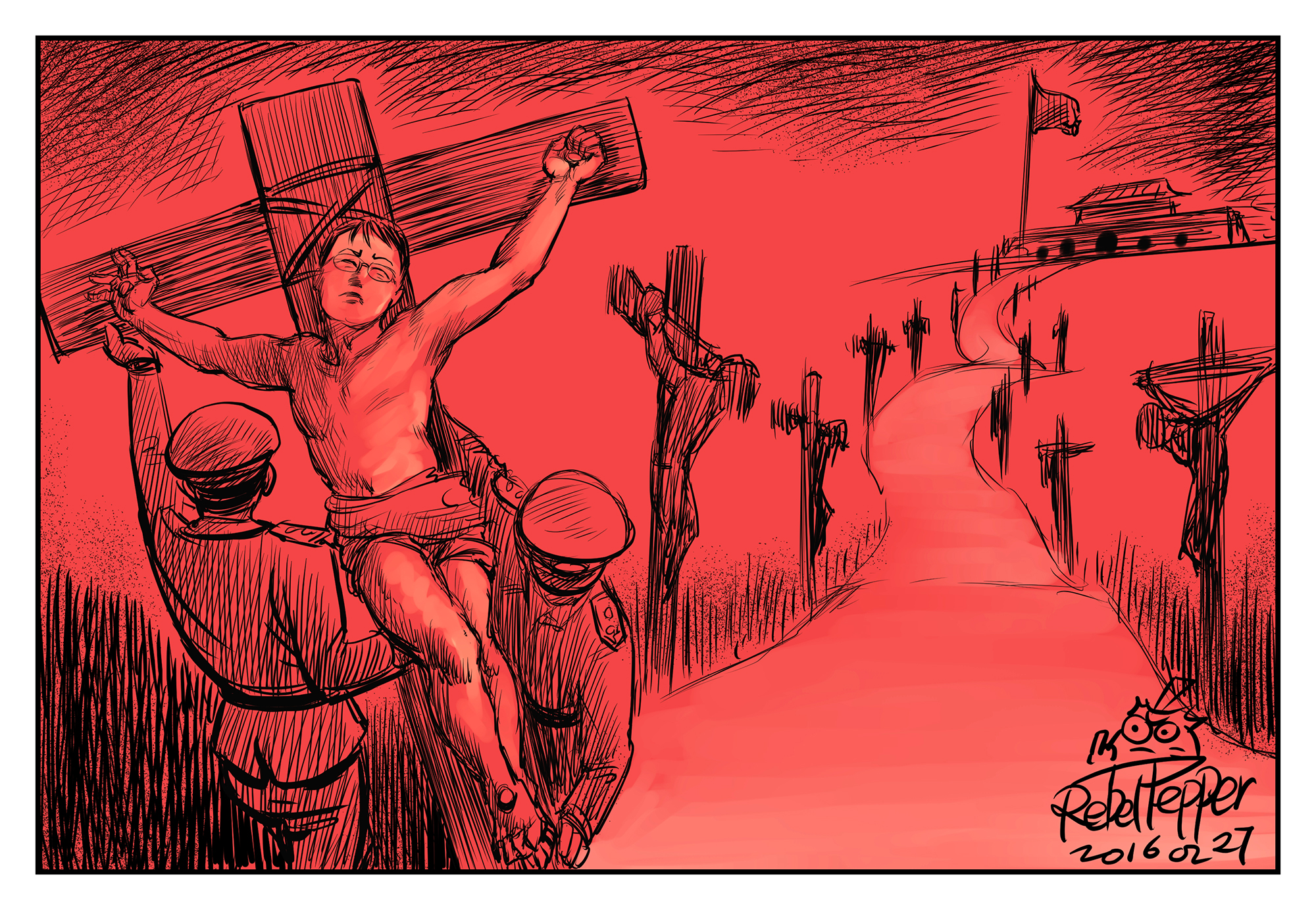Rights lawyer Zhang Kai was detained in August 2015 after working with Christians in Wenzhou, Zhejiang who were protesting the removal of crosses and demolition of churches in the city. Before being released in March, Zhang issued a public “confession,” which his wife and other supporters claimed at the time was forced. He also was interviewed by Phoenix Television after the trial of fellow rights lawyer Zhou Shifeng in August, when he expressed support for the government’s round-up of lawyers over the summer of 2015, known as the “709” (for July 9, the date it was launched) or “Black Friday” crackdown. Zhang has now disavowed the interview and says it was made under duress:
Lawyer Zhang Kai: I was forced to make comments on #709 trials on Aug4. I regret & withdraw them. h/t @FRJonathanLiu pic.twitter.com/GnYRRdGV0z
— Yaxue Cao (@YaxueCao) August 30, 2016
Mimi Lau of the South China Morning Post reports:
During the interview earlier this month, Zhang said that from the perspective of a lawyer, the court in Tianjin had handled Zhou’s case fairly.
“I personally think they might have gone too far,” Zhang said during the interview, referring to activists Zhai Yanmin, Hu Shigen and Zhou, who were among the first three detainees to go on trial over the crackdown.
[…] “My elderly parents were living in fear and worry during the six months of detention in which I was held in darkness. [I was] powerless to resist the pressure imposed by a strong regime,” Zhang wrote.
“I am willing to confess to God for [my] weakness and fear in my heart and spirit and I ask the forgiveness of other family members of 709 [victims],” he added. [Source]
Televised or otherwise publicized confessions have been a routine feature of the Black Friday crackdown, as lawyers and activists have been paraded in official media denouncing not only their own actions but those of their colleagues and of foreign groups which fund or otherwise support their work. In his original confession in February, Zhang spoke out against the role of foreign “hostile forces” in legal activism. Nathan Vanderklippe of the Globe and Mail reported at the time:
In his confession, he said he had broken Chinese law, disrupted social order and endangered state security, adding that “foreign forces” had contributed to his work as part of an effort to “smear” China.
Mr. Zhang said he knew some of the demolished churches were illegal structures, but had instead told churches that they were being oppressed.
“These acts violated the law of China and went against the code of lawyers,” he said, adding that he had sought fame and money.
The broadcast showed Mr. Zhang sitting alone on a chair wearing a black sweater – a posture that has become familiar in China, where authorities have used a new campaign of televised confessions to strike fear in groups that might stand against the government. [Source]
Such language condemning “hostile forces” was heard in the trials of rights lawyers earlier this month and a surrounding propaganda campaign as authorities have attempted to link foreign funding to efforts to overthrow the Communist system. In a recent post for Hong Kong Free Press, China Media Project’s David Bandurski writes that President Xi Jinping has returned to “ideologically extreme” language in the constitution to justify the crackdown on rights activism, noting that such language hasn’t been officially employed in the media since just after the June 4, 1989 military crackdown on protesters:
Praising the recent verdicts against four legal rights advocates, all of whom were found guilty of “subversion of the state” in cases stemming from the arrest last year of more than 300 lawyers and activists, an August 6 commentary in the Chinese Communist Party’s People’s Daily newspaper said:
“Our nation’s constitution points out in a clear-cut manner, that, ‘The Chinese people must carry out struggle against domestic and foreign hostile forces and hostile elements that antagonise and damage our country’s socialist system.’”
The deployment against human rights activists of this constitutional passage about “hostile forces” is a sobering reminder of a contradiction that lies deep in the political DNA of the Chinese Communist Party — the notion that the flesh-and-blood people of China are ruptured into two struggling camps: those who willingly submit to the will of the Party, and those “enemies” who oppose “the people” and the “socialist transformation.”
This idea has its origins in Mao Zedong’s infamous February 1957 speech on “internal contradictions among the people,” a shrill call to arms that urged ahead the Anti-Rightist Movement, sentencing millions of writers, artists, teachers and journalists to “re-education through labour” and other forms of punishment. [Source]
In the wake of the Black Friday crackdown, a group of Chinese activists and dissidents met with the U.S. National Security Advisor Susan Rice before the G20 summit in China to encourage President Obama to raise the issue of human rights with Xi.
Meanwhile, cartoonist Badiucao has drawn a series of portraits of family members of the Black Friday lawyers. The portraits resemble a series he drew of the detained lawyers last year:
Portraits for supporting #709lawyers and their families. Li Wenzu, Wife of Wang Quanzhang #王全璋 妻子 #李文足 #badiucao pic.twitter.com/AFbowQWboW
— 巴丢草 Bad ї ucao (@badiucao) August 30, 2016
Portraits for supporting #709lawyers and their families. Yuan Shanshan, Wife of Xie Yanyi #谢燕益 妻子 #原珊珊 #badiucao pic.twitter.com/baGuYe3Ij1
— 巴丢草 Bad ї ucao (@badiucao) August 30, 2016
Portraits for supporting #709lawyers and their families. Wang Qiaoling, Wife of Li Heping #badiucao #李和平 妻子 #王峭岭 pic.twitter.com/0GDEdknndG
— 巴丢草 Bad ї ucao (@badiucao) August 30, 2016








